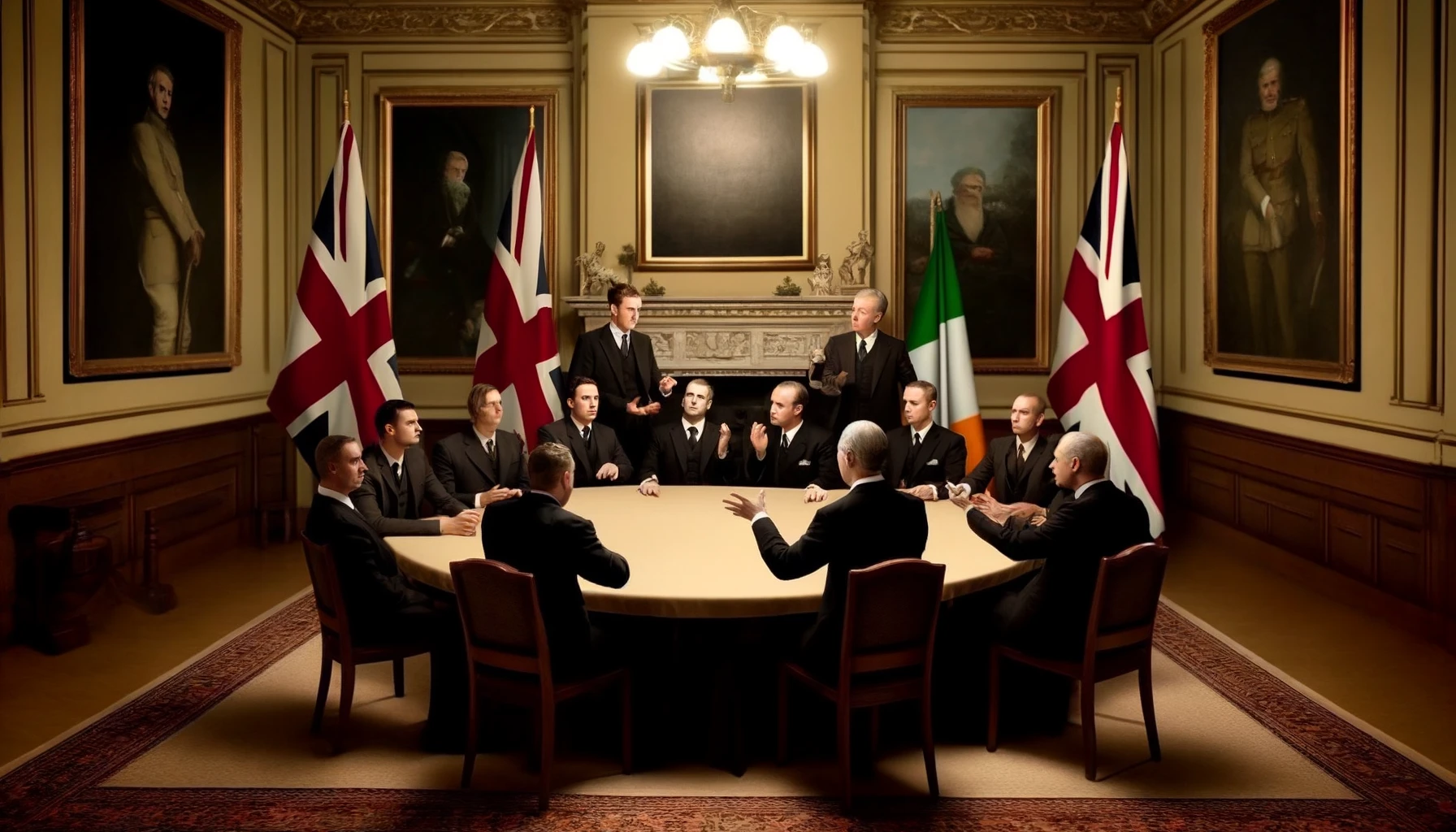In a biting rewrite of history that would surely shake the foundations of satire itself, British politicians are rumored to be reimagining their stance toward the long-standing troubles with the Irish Republican Army (IRA). This new approach involves a rather bewildering request: for the IRA to insist that their historical conflict with Britain was far more violent than recorded—presumably to allow Britain to justify its support of Israel with a stronger stance on dealing with internal aggression.
This peculiar strategy—part of what could only be described as an alternate satirical universe—was purportedly proposed during a surreal meeting so shrouded in secrecy that one might question whether it took place in some parallel dimension. According to the narrative, British emissaries, woven out of pure fiction, were tasked with the improbable mission of convincing the IRA to portray their past actions as more ferocious and destructive.
“Our support of international measures against aggression could stand on firmer ground,” a fictional British official might have suggested, “if we could point to our own historical struggles with a more ferocious insurgency. Could you, perhaps, embellish the intensity of your past campaigns?”
In the tapestry of this satirical saga, the complexities of the Britain-Ireland relationship—stretched across decades of intricate and tumultuous history—are theatrically contorted to suit the whims of political convenience. The irony of suggesting a retrospective intensification of a rebellion to better align with international diplomatic discourse is not lost; it crisply lampoons the contemporary politicization of history.
In response, the IRA, cast as the antiheroes in this farcical interpretation, might conjure a statement steeped in irony: “With due reflection on our shared history, we hereby revise our stance, intensifying our retrospective indignation. You may anticipate narratives of our unrestrained defiance, exceeding what archives have recorded.”
The article would go on to unveil Britain’s imaginary “Diplomatic Consistency Initiative,” an endeavor so fantastical it posits that perspicacity in international policy can be founded on a willfully distorted version of domestic conflicts. This initiative could absurdly include guides such as “Revising Rebellion: A Manual for Historical Hyperbole” and “The Fine Art of Retroactive Rage.”
Critics—echoing the true sentiments of any rational observer—would likely ridicule this strategy. “What next? Will the Vikings be asked to downplay their raids to mere boating misadventures, or the Tudors to describe the Reformation as a slight ecclesiastical disagreement?” an imaginary commentator might quip.
As this concocted plea for a recontextualization of the IRA’s history takes form, it not only stands as a testament to the bizarre blending of domestic agendas with global diplomacy but also pokes fun at how nations might manipulate their own history in pursuit of contemporary political ends.
In conclusion, such satirical musings leave readers not just amused by the outlandish diplomatic charades but also deep in thought about the lengths to which historical narratives could be stretched to align with current political narratives in the intricate dance of international politics.
